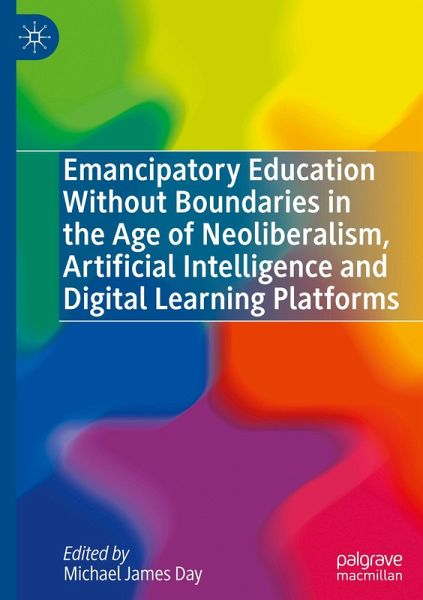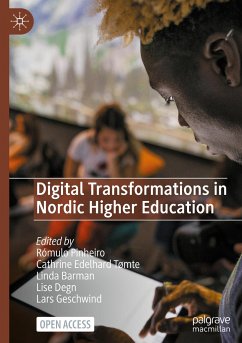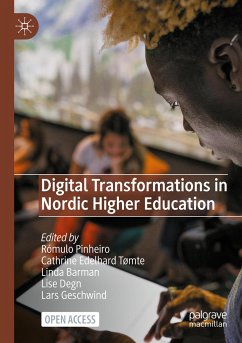
Emancipatory Education Without Boundaries in the Age of Neoliberalism, Artificial Intelligence and Digital Learning Platforms

PAYBACK Punkte
61 °P sammeln!
This edited book explores how university educators are leading pro-human change in global higher education in a rapidly evolving digital era. The book highlights the transformative power of collaboration, impactful educational development, and inclusive communities within academic settings, demonstrating how education without boundaries can catalyse social, political, and human rights advocacy. Through insightful ethnographic accounts and expert perspectives, chapters examine the challenges and opportunities of artificial intelligence, neoliberal university expansion, and digital learning envi...
This edited book explores how university educators are leading pro-human change in global higher education in a rapidly evolving digital era. The book highlights the transformative power of collaboration, impactful educational development, and inclusive communities within academic settings, demonstrating how education without boundaries can catalyse social, political, and human rights advocacy. Through insightful ethnographic accounts and expert perspectives, chapters examine the challenges and opportunities of artificial intelligence, neoliberal university expansion, and digital learning environments. This collection offers practical strategies and critical reflections for fostering student success, advancing teaching and learning, and shaping curriculums suited to the post-digital future of higher education. The book will interest academics and students exploring higher education, digital education, educational technology, artificial intelligence, pedagogy, and human rights.












